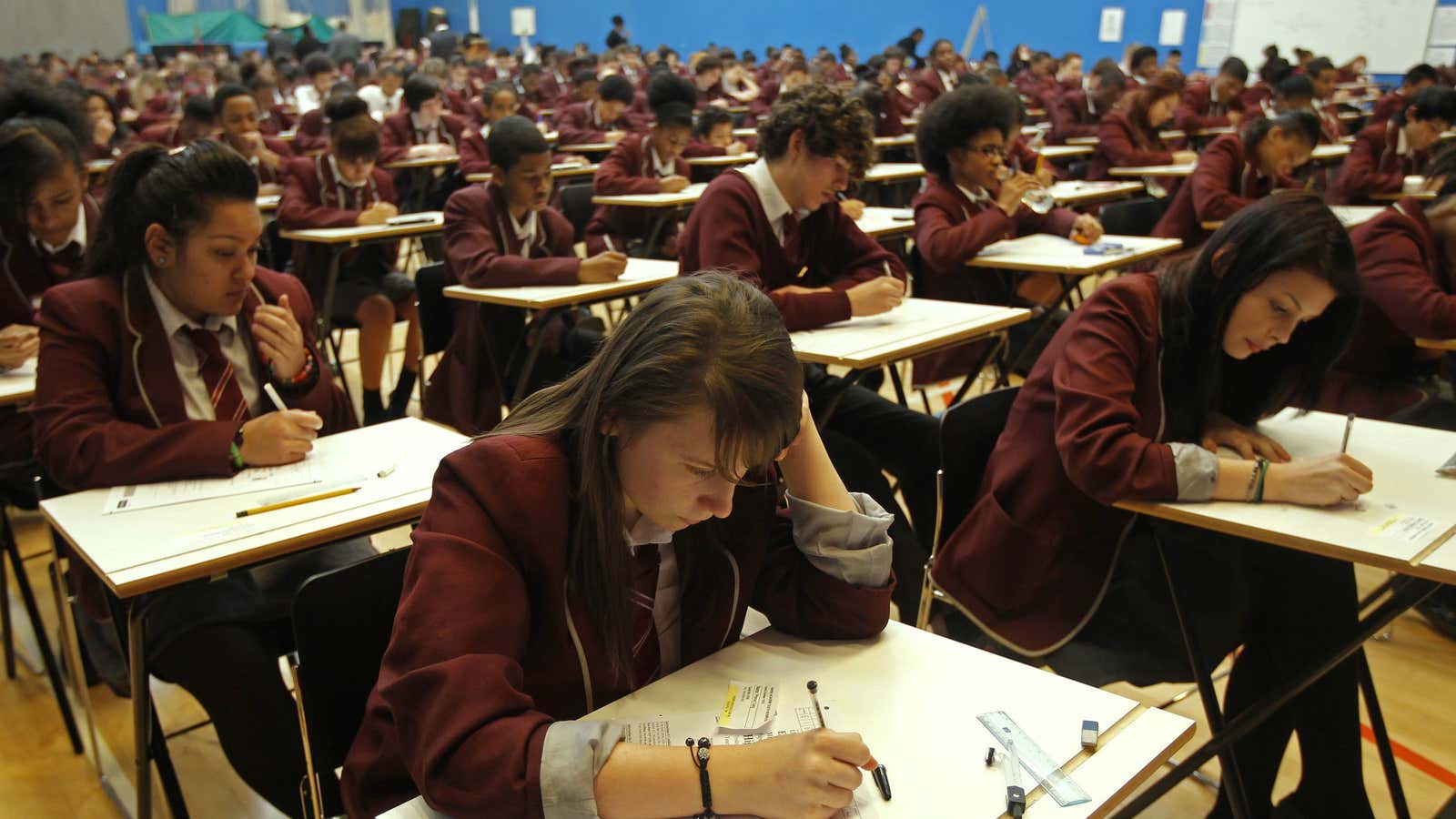Twenty years of research shows that getting parents involved with their children’s education is one of the most effective ways (pdf) to raise student achievement. Figuring out how to motivate parents to get involved has proven to be a far more complex problem.
A huge new study, just completed in Britain has a weirdly simple, and inexpensive answer: texting.
In a randomized controlled trial with nearly 16,000 children from 36 British secondary schools, one group of parents received an average of 30 texts a year, or about one a week. The messages informed parents about dates of upcoming tests, whether homework was submitted on time, and what their children were learning at school. The other group received no text messages.
The students whose parents received these texts made an additional month’s progress in math compared to students who were not in the group, with an independent team of evaluators confirming the effect was most likely from the intervention, and not random.
“It’s an easy win, and a low-cost one,” said Kevan Collins, CEO of the Education Endowment Foundation, which funded the trial and which researches how to close the gap between advantaged and disadvantaged students.
If one month of progress seems scant, it’s not: the British government spends £500 per month per student. The texting program cost £7.55 ($10.04) for the whole year.
There were other benefits too: absenteeism dropped by a half a day, even though none of the texts were related to attendance (attendance at British schools is more than 95%). The report suggested it might be “related to the increased monitoring by parents of children’s school-related activities overall, creating an environment in which pupils felt less able or willing to truant.”
The research is the latest from the Parent Engagement Project (PEP), which was developed by research teams from the University of Bristol and Harvard University and used in schools between September 2014 and July 2015.
Raj Chande, a senior advisor for the Behavioural Insights Team in the UK, said schools should think about how to leverage texting platforms they already have for administrative purposes toward more educational goals, like improving math scores. “They have a powerful medium at their control and they should think about what they could use it for,” he said.
Collins said parents and teachers overwhelmingly reported back that they liked the program, which makes future uptake more likely.
What made the results more notable was what didn’t work in two other more intensive parental-engagement programs.
The Parent Academy, developed at the University of Chicago, offered parents 12 classes over the course of an academic year to help them help their children with math and literacy skills. SPOKES (Supporting Parents on Kids’ Education in Schools), developed by the Plymouth Parent Partnership, a charity, and the University of Oxford, gave parents of 5- and 6-year-olds struggling readers 10 group sessions to help them support their children’s learning at home.
Neither program had a direct effect on academic outcomes, though more data are needed on the Parent Academy one Collins said (and there were some effects on things like kids’ confidence).
The mixed results underscore the importance of doing proper randomized studies where there are control groups to test what is actually working.
“What surprised me the most was that the SPOKES program with a senior team from Oxford University working face-to-face with parents didn’t make much of a difference, but with a low-investment program we saw an improvement.”
Even the kids liked the program: according to Chande, students from the intervention group liked the idea of continuing the program more than those who weren’t part of it. That means parents, teachers, and even obstinate teens are on board for a program that could boost academic attainment. That’s something to text home about.
